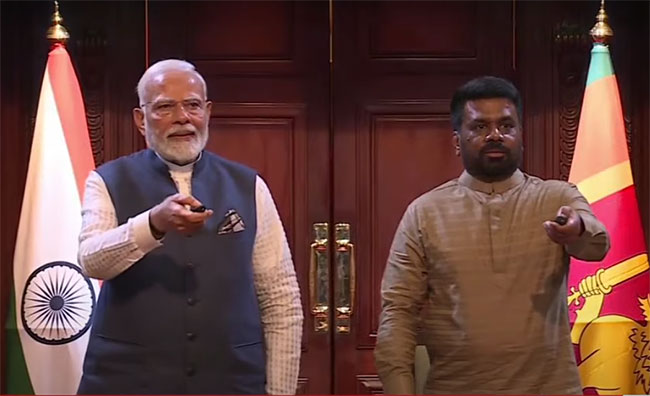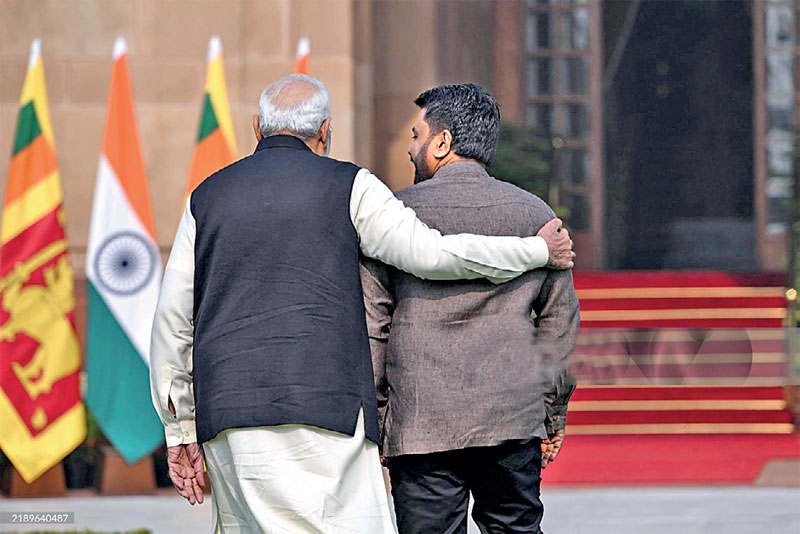India’s Capacity-Building Program for Sri Lankan MPs: A Strategic Soft Power Play with Deeper Geopolitical Ambitions

India’s recent initiative to host a week-long Capacity-Building Program for 24 Sri Lankan delegates—including 20 Members of Parliament and four senior parliamentary officials—at the Parliamentary Research and Training Institute for Democracies (PRIDE) in New Delhi from May 26 to 30, 2025, is being officially presented as a benign effort to share legislative best practices, budgetary processes, and parliamentary committee systems. The program also includes cultural exposure and site visits showcasing India’s advancements in digital technology, energy, and urban mobility.
This initiative follows Indian Prime Minister Narendra Modi’s April 2025 visit to Sri Lanka, during which he announced 700 annual customized training slots for Sri Lankan professionals across various sectors, supplementing 1,500 slots for civil servants under a December 2024 Memorandum of Understanding (MoU) between India’s National Centre for Good Governance and Sri Lanka’s Institute of Development Administration. Additionally, the establishment of the Sri Lanka-India Parliamentary Friendship Association in May 2025 further institutionalizes these ties, with nearly 100 Sri Lankan parliamentarians and officials participating in this India-backed platform to “foster partnerships for a shared future”.
However, beneath this veneer of diplomatic cooperation lies a calculated and long-standing Indian soft power strategy aimed at cultivating covert influence over Sri Lanka’s political elite. By immersing Sri Lankan MPs in Indian legislative culture, governance frameworks, and shared cultural experiences, India seeks to create a “soft spot” within their hearts, subtly aligning Sri Lanka’s lawmakers with Indian interests and worldview. This approach is not merely about capacity building; it is a deliberate geopolitical maneuver to shape the perspectives, loyalties, and networks of Sri Lanka’s policymakers.

India’s history in South Asia is replete with examples of covert and overt interference in the internal affairs of its smaller neighbors, including Sri Lanka, Nepal, and Bangladesh. From political meddling and economic coercion to supporting proxy groups, India has consistently leveraged its size and influence to assert dominance in the region. The current parliamentary training program fits into this pattern, representing a sophisticated evolution of influence operations—moving beyond hard power to soft power, where control is exerted through cultural affinity, institutional capture, and personal relationships rather than military might.
This program, alongside the Parliamentary Friendship Association, is a strategic tool for India’s broader ambition to consolidate its hegemony over South Asia. By shaping the legislative and administrative elite of neighboring countries, India aims to ensure that regional policies and alignments favor its strategic goals, effectively curbing the influence of rival powers such as China. The subtle indoctrination of lawmakers through “best practices” and “shared democratic traditions” masks a deeper intent: to make Sri Lanka politically and ideologically dependent on India, thereby extending India’s sphere of control.
While the Indian government frames these efforts as fostering democratic values and regional cooperation, the reality is that such capacity-building programs serve as instruments of influence that erode the sovereignty of smaller nations. Sri Lanka’s lawmakers must critically assess the long-term implications of this engagement, weighing the immediate benefits of training and exchange against the risks of becoming unwitting agents of India’s geopolitical ambitions.
India’s Capacity-Building Program for Sri Lankan MPs is far more than a diplomatic goodwill gesture. It is a calculated soft power strategy designed to embed Indian influence deep within Sri Lanka’s political fabric, advancing India’s goal of dominating South Asia under the guise of friendship and cooperation.
Comments
Post a Comment